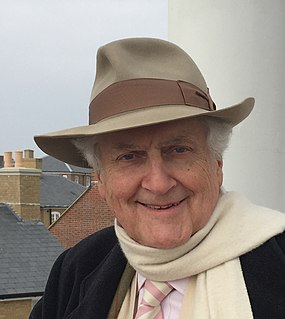A Quote by Leon Krier
All buildings, large or small, public or private, have a public face, a facade; they therefore, without exception, have a positive or negative effect on the quality of the public realm, enriching or impoverishing it in a lasting and radical manner. The architecture of the city and public space is a matter of common concern to the same degree as laws and language—they are the foundation of civility and civilisation.
Related Quotes
The best way to alleviate the obesity "public health" crisis is to remove obesity from the realm of public health. It doesn't belong there. It's difficult to think of anything more private and of less public concern than what we choose to put into our bodies. It only becomes a public matter when we force the public to pay for the consequences of those choices.
Public virtue cannot exist in a nation without private, and public virtue is the only foundation of republics. There must be a positive passion for the public good, the public interest, honour, power and glory, established in the minds of the people, or there can be no republican government, nor any real liberty: and this public passion must be superiour to all private passions.
The public realm in America has two roles: it is the dwelling place of our civilization and our civic life, and it is the physical manifestation of the common good. When you degrade the public realm, you will automatically degrade the quality of your civic life and the character of all the enactments of your public life and communal life that take place there.
If the world is to contain a public space, it cannot be erected for one generation and planned for the living only; it must transcend the life-span of mortal men…. There is perhaps no clearer testimony to the loss of the public realm in the modern age than the almost complete loss of authentic concern with immortality, a loss somewhat overshadowed by the simultaneous loss of the metaphysical concern with eternity.




































